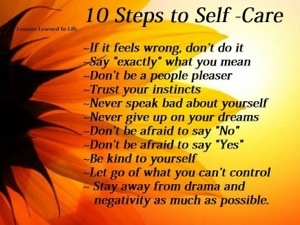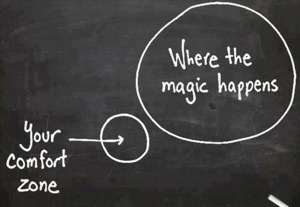We all go through tough times. Sometimes we seek out support in these times, by talking to a friend, family member or even a counsellor. Sometimes it is easier to talk to a stranger then a friend. Other times it’s easier to just keep it to yourself. However we choose to deal with it, most people are offered some kind of support during this tough time. But how do we either accept or decline this help without burning our bridges? What if talking to friends hasn’t helped? Where can we go to get support when going through tough times?
Here are 5 things to think about when facing tough times that may help you work things out, or just to get through the worst of it.
1: Always acknowledge the person that has offered you their support
We as people are self-absorbed. In most cases the average person is most interested in one thing above all others…themselves! This is not to say we are all selfish, but that it is human nature to look out for number 1. Having said that we are all capable of supporting another and I’m certain all of you at one point in your lives have offered yourself to another for support during a tough time. Similarly at some point you will all be offered support by someone. They may not be a close friend. They may not even be considered a friend, but more of an acquaintance or colleague. But they have offered you support out of their concern for you and your situation.
If you are strong willed or even just a very private person, you will be inclined to brush off any help. People who cannot accept help tend to take the world on their shoulders, and assume they are supposed to be able to go it alone. To accept help gratefully would be showing themselves as weak. This is not necessarily true.
The person offering help may be very well intended with only concern for your wellbeing. They may have a wealth of experience in this area, and be offering you support as they believe they may be able to add some insight into your situation.
I recently offered a colleague who had been off work due to a personal issue, personal support should they need to talk, and how did they react? They changed the subject. I offered again, more gently this time to show I was only concerned for their wellbeing, as I thought perhaps they hadn’t heard or understood my offer. They then brushed me off and began talking about a mundane work issue.
I can take a hint. You don’t want the support I am offering. But it’s just plain rude to pretend I didn’t even say anything! I know I will be less inclined to offer my help or support to this person again. I’ll be hard pressed to even care next time.
Had this person simply thanked me and declined the support, or even just declined saying they would be ok I would respect their wishes and feel ok about it. However by ignoring the offer they burned their bridge with me. You don’t need to accept the offer of help, just acknowledging that the person has offered it to you is enough to show them you value the gesture.
2: Seriously consider their offer
The fact that this person has offered support to you should indicate to you that they care in some way about you, even if it is just in relation to part of your current challenge.
I had a rough experience at work a few years ago where my management position was being phased out of the structure, and the only position available to me was aligned to my previous role as a team leader. This was a tough time for me career-wise as I had known the role was going to be phased out but had kept faith that a similar level role would be found for me within the company. I had not even considered a step backwards could occur. But it did, and I had trouble dealing as it was not a result of my quality of work or of my value, but a necessary structural change across our business. This didn’t prevent me from feeling like I must’ve f@&ked up somewhere and not been told. A friend and colleague of mine mentioned that another of our colleagues had told him to offer her support if I needed to talk. This colleague had been through a similar change previously, and kind of been shafted but was positive and professional.
My first instinct was to thank the messenger and forget it was offered. But as I struggled day to day with my self esteem and perceived value of my contribution at the office, I realized that I should accept this offer. I called her after work and we agreed to have lunch.
We talked about each of our experiences over sushi, and it was good. Talking with her didn’t fix how I felt, and she wasn’t able to provide any magic solution for getting back up the ladder, but it made me feel understood and connected. Talking with someone who had been through a similar experience was empowering because they actually did understand how I felt about it.
Often when we are struggling with a challenge or tough times it is the feeling that no one understands that can break you. Talking to my colleague (and now friend) took pressure off me to process how I felt by myself, and it helped me to feel like I was not alone.
3. If you can’t confide in a friend, talk to a professional
There are a range of support hotlines available where you can talk to a professional about almost anything. Most workplaces provide an employee assistance program which offers 3 counseling sessions at no charge. TAFEs and universities also have these services available to their students. Many crisis lines exist if you are at risk of endangering yourself or others. R U OK offers a free call hotline which connects you to 5 of Australia’s crisis and information hotlines; Lifeline, Suicide Call Back Service, Kids Helpline, SANE Australia helpline and beyondblue Info Line. These hotlines are designed to support you anonymously when you are in a crisis.
If your problems are less urgent then consider talking to your GP about finding a counsellor. If cash flow is a problem and your issues are warranted, your GP can assist in setting you up with a Mental Health Care Plan, where if approved you will be entitled to a set number of free or subsidized counseling sessions through Medicare. This is most suitable for those diagnosed with Depression or Anxiety conditions, that are more long term issues.
Talking to a professional can assist you in gaining the tools you need o learn to change habits or just to learn new coping techniques.
4. Reconnect with your network
We all have a network of people in our lives who we care about and that care about us. Parents, siblings, extended family, friends, mentors, colleagues and acquaintances, are all part of our network. If you aren’t comfortable talking about your personal situation then ask about theirs instead. As I mentioned earlier, we are all self focused so not only will they appreciate getting time with you, they will get to air their important thoughts, and you can take a break from yours. Alternatively, you can share your burdens with someone you know and trust, and get insight into yourself from someone who knows you. This can be very helpful in staving off any solitude and thoughts that no one will understand you. If you give them a chance they may surprise you!
5. Do something for you
When going through a challenging time often the last thing we want to do is to stop being busy. This will lead to time alone, which may lead to thinking, which may lead to despairing over your situation. This is all true. But it can also alleviate pressure. Sometimes you need perspective to work out a problem or to get through tough times.
If you are stuck on a problem get off the dance floor
Taking time out for you is essential to recharge your brain and gain new strength to refocus your energies. Sometimes you cannot find a solution until you get some distance from your issue. You may be too close to the issue to be objective or you may just be too worn out to handle it at that moment. We put oil in our cars so the components inside can run smoothly, meaning a smoother and safer drive. We need to give our minds something too, to allow us to use them effectively. You could get a massage, go shopping, dedicate a day to video games, read a book, take a bath, walk outside in the sun, meditate, practice yoga, go to the gym or bake a cake. But whatever you do commit to making it time for you, and if possible take yourself somewhere where this time will not be interrupted. This will give your mind and body time off from worrying, and help you find some clarity about what is important, and about what you can actually control in your situation.
Hopefully you will find some value in this, I know these techniques have worked for me. I hope they can help you too
Day 2
A x


















